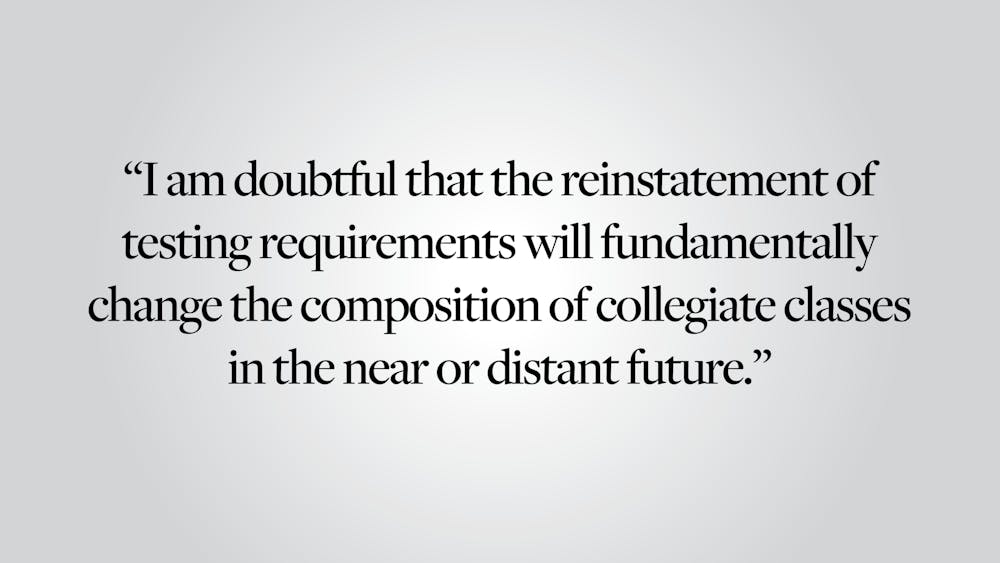Since the Supreme Court ruled affirmative action programs unconstitutional in June 2023, the college admission process has found itself under near-constant scrutiny by commentators. Still, few issues have stirred more controversy than the single question college admissions offices across the country are currently answering for themselves: whether to return to pre-COVID standardized testing requirements or permanently suspend them.
As important as this question is for promoting equity, I often feel that the entire debate on this subject is rather overblown. The fundamental question that drives this debate is whether class diversity increases or decreases as a result of this policy, yet I see no reason why this policy could prompt such a change. Colleges and universities have already voiced their support for diversity in college admissions — as seen in the aftermath of the Students for Fair Admissions v. Harvard ruling. If anything, the Supreme Court ruling would have been the catalyst for wholesale change in the admissions process.
Most of the controversy stems from the fact that experts are split on whether test-optional policies increase or decrease diversity in college classes. Many claim that testing requirements disadvantage low-income and minority students because they cannot afford access to expensive test preparation classes, while other studies show the exact opposite effect to be true.
Even the Ivy League itself is split on this question. Dartmouth, Yale and Brown have all announced that test scores will be required from next year’s admissions cycle onward. The remaining five institutions have suspended their testing requirements for further review.
At times, this debate around testing policies has transcended the realm of college applications and become yet another front in America’s culture war. Conservative commentators have lampooned test-optional policies, comparing them to the diversity and inclusion programs they oppose. The demographic divide between supporters and opponents of these policies can’t be more clear, as the Herald Spring 2024 poll showed. Minority, first-generation, and activist-oriented students are far more likely to approve of test-optional policies, reflecting the same demographic divide seen in many contemporary issues. It appears both sides alike have already decided for themselves the answer to this question, and the ensuing heated debate has made the entire issue appear more important than it frankly is.
I am doubtful that the reinstatement of testing requirements will fundamentally change the composition of collegiate classes in the near or distant future. Many colleges, including all eight Ivy League institutions, are explicitly committed to ensuring diversity in their classes even in the face of legal challenges. Harvard, for example, replaced its supplemental application question with a list of short essays that prompted more reflection on the applicants’ experiences in life tied to race — rather than asking for applicants’ racial identities explicitly — to better align with the Supreme Court ruling.
Most importantly, colleges did not note a significant change in student demographics after implementing test-optional policies, so if the initial change did not lead to demographic shifts, why would the reverse not hold? Though inequity in admissions is a longstanding issue, minority students with below-average test scores have earned admission to prestigious colleges for years before the pandemic because colleges have already shifted toward more holistic admissions policies that consider factors such as socioeconomic background, extracurriculars, family circumstances, in addition to test scores. We have much work ahead of us to ensure true equity in college admissions, but the test score question is besides the point in this respect; admissions offices now consider so many factors that standardized testing alone cannot make or break an application.
College admissions are such a controversial subject today because they symbolize the battle for social mobility and equality in this country. The nature of the process is therefore well-deserving of prolonged debate. Yet on the subject of testing requirements, there is no need to continue beating a dead horse. There are far more pressing matters on college admissions, from financial aid policies to legacy admissions, that are more worthy of our attention.





